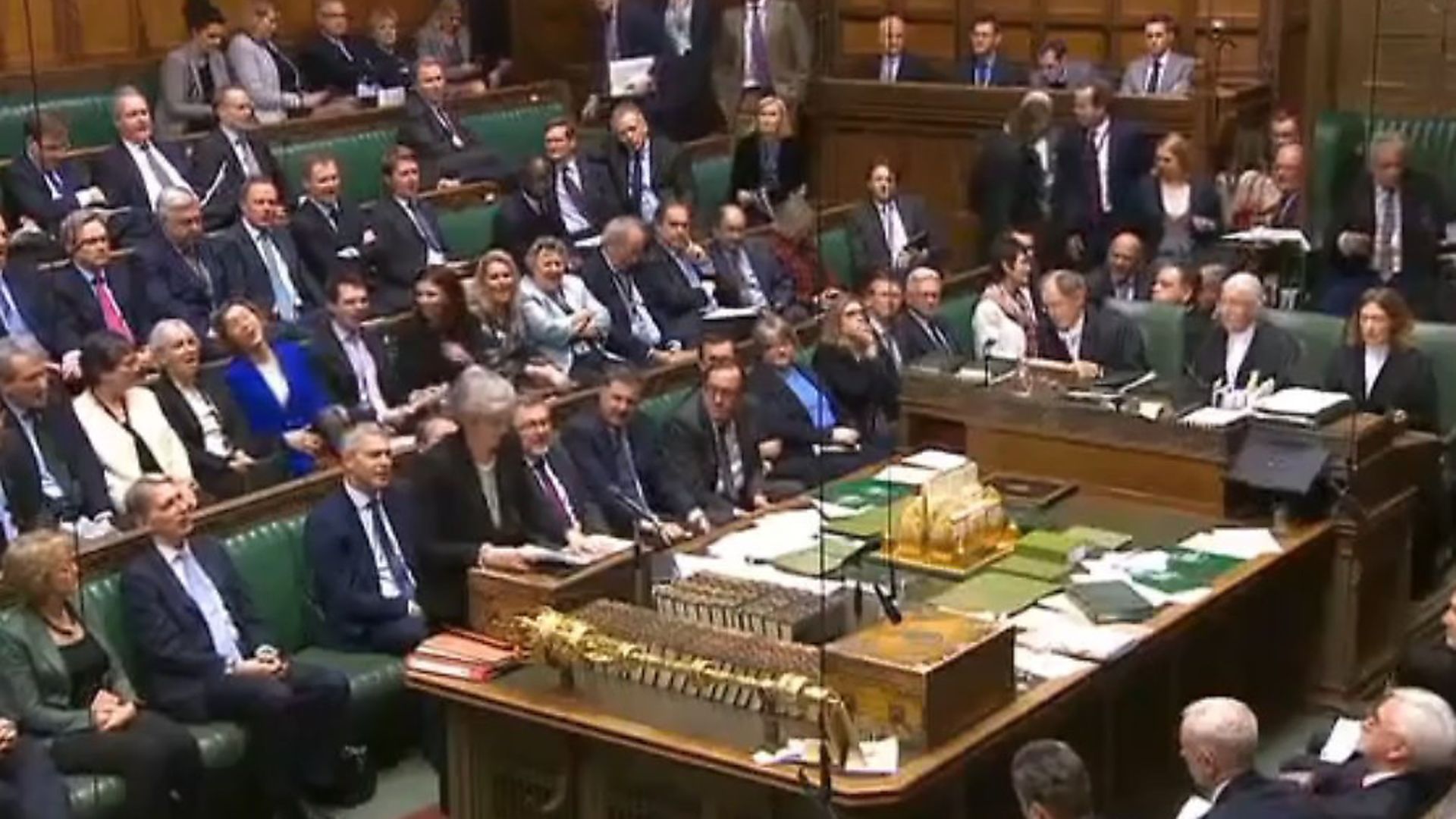
The Brady amendment on Theresa May’s Brexit deal will put the UK in breach of international law if the EU does not move on the backstop, it has been claimed.
The prime minister is to return to Brussels to demand concessions on the divorce deal after securing a Commons victory last night on an amendment put forward by Sir Graham Brady, chair of the 1922 Committee of Tory backbenchers.
That amendment replaces the Irish backstop arrangement – an insurance policy to prevent the need for a hard border on the island of Ireland – with unspecified ‘alternative arrangements’.
But the anti-Brexit campaign group Best for Britain has now uncovered a House of Commons library research note outlining how the UK has moved close to breaching international law by jettisoning the backstop.
The note says that ‘the UK would be in breach of its international legal obligations’ if the EU ratified an unamended withdrawal agreement.
The Brady amendment has already been immediately and forcefully rejected by the EU as a chorus of national leaders and the bloc’s most senior officials said that there would be no renegotiation.
Donald Tusk, president of the European Council, said last night: ‘The backstop is part of the withdrawal agreement and the withdrawal agreement is not open for renegotiation.’
The Commons library note states that ‘if the UK’s domestic legislation contained provisions for a time-limited backstop, but the EU ratified an unamended withdrawal agreement, then the UK would be in breach of its international legal obligations, as the withdrawal agreement (Article 1 of the Protocol on Ireland/Northern Ireland) makes clear that the backstop’s legal provisions shall apply ‘unless and until they are superseded, in whole or in part, by a subsequent agreement’.’
The note also says the UK would be in breach of its ‘good faith’ obligations as set out in Article 5 of the withdrawal agreement.
If that happened then the EU and the UK would have to settle the matter using the dispute mechanisms set out in the withdrawal agreement – if the withdrawal agreement were deemed to have been legally ratified by the UK, given that it would have unilaterally changed the terms of the agreement.
But the note adds: ‘The EU would be highly unlikely to ratify the withdrawal agreement if the UK’s domestic law clearly contemplated circumstances in which the UK would breach or ignore any of its legally binding commitments in the withdrawal agreement itself.’
The Irish government has also already rejected reopening the backstop, describing it as a ‘carefully negotiated compromise’.
Liberal Democrat MP and Best for Britain supporter Layla Moran MP said the UK could become an ‘international pariah’:
She said: ‘The EU has been clear that the agreement is locked and they will not move on the backstop.
‘So if we pass this deal with the amendment, then the advice is clear, we will break international law. Simply put, the Prime Minister risks undermining her own deal to appease the ERG [European Research Group of hardline Tory Brexiteers].
‘This is not just illogical. It will turn the UK into an international pariah, ripping up conventions and treaties for narrow party political interests.’
May won the reprieve two weeks after suffering the biggest Commons defeat in British political history. It commits her to seek a time limit to the backstop, achieve a unilateral exit from it or pursue an unknown technological solution negating the need for a border.
She is expected to speak today to Tusk and Leo Varadkar, the Irish prime minister.
Seven Labour MPs voted with the Tories and DUP as the amendment passed by 317 to 301. Eight Conservative MPs voted against.










